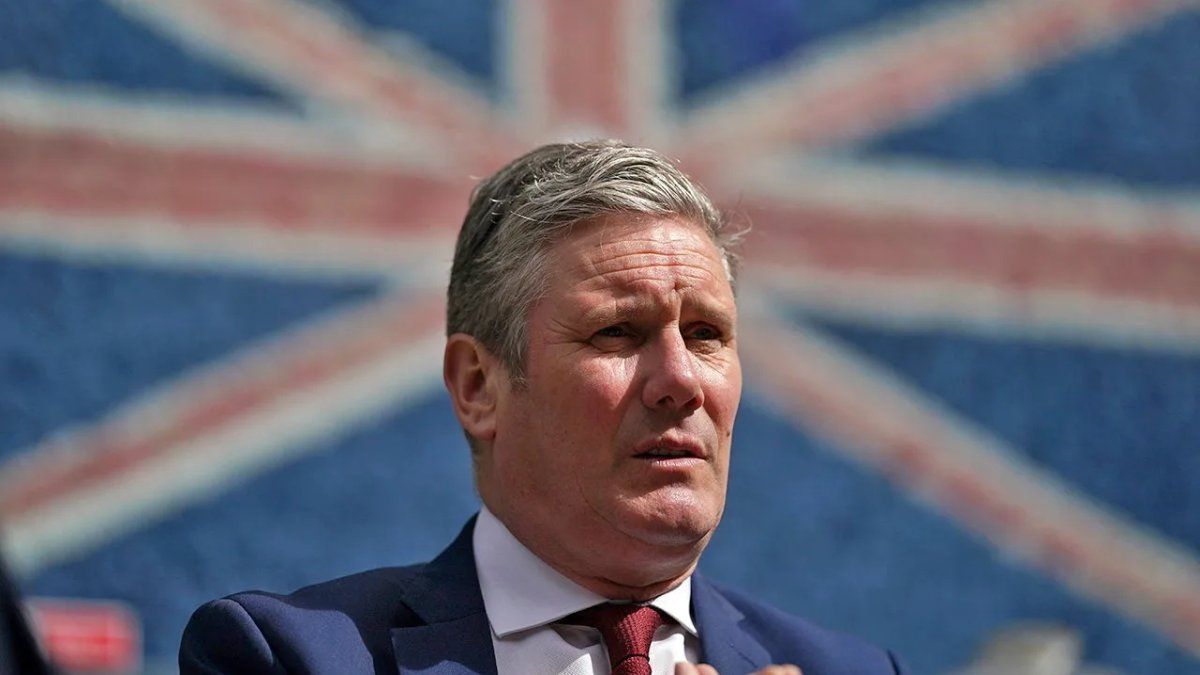Order books are full, but disrupted supply chains as a result of the pandemic and the Ukraine war are slowing companies down. The BDI must correct the prospects. It can get worse.
German industry with millions of employees has drastically lowered its economic forecast for this year.
Growth in economic output in Germany is only expected to be around 1.5 percent, as the Federation of German Industries announced on Tuesday in Berlin on Industry Day. At the beginning of the year, before the start of the Russian war of aggression in Ukraine, the industry had still assumed an increase of around 3.5 percent for 2022.
“Double Crisis”
“The double crisis of the Russian invasion of Ukraine and the effects of the Covid pandemic are causing problems for the industry,” said BDI President Siegfried Russwurm. “From today’s perspective, accepting massive dependencies as the price for cost advantages and economies of scale was just as wrong as our country forgoing sufficient investments in its own defense capabilities,” said Russwurm. “We skipped the fire brigade because we considered the risk of fire to be negligible. Now it’s on fire.”
Germany is still dependent on Russian gas and other raw materials. Russia had cut gas supplies through the Nord Stream pipeline in the Baltic Sea. Russwurm said the war had uncovered Germany’s “Achilles heel” as an industrial country: security of supply for energy, raw materials and basic technologies.
Russwurm expects the economy to recover in the sense of a return to the level before the corona pandemic at the end of the year at the earliest. The prerequisite, however, is that Russian gas continues to reach Western Europe. “An interruption would have catastrophic effects on the manufacturing industry and would inevitably send our economy into recession.”
The company’s order backlog is at a record high. However, due to delivery bottlenecks, production is sometimes significantly affected. Uncertain economic prospects and increased uncertainty due to the war also slowed companies’ investment activity. The BDI also corrected the prospects for exports downwards. Growth of 2.5 percent is now expected for 2022, in January the association had predicted an increase of 4.5 percent.
Industry Day
Chancellor Olaf Scholz (SPD) and, among others, Finance Minister Christian Lindner (FDP) and Economics Minister Robert Habeck (Greens) were expected at Industry Day on Tuesday. Russwurm once again welcomed Habeck’s plans to reduce gas consumption in industry. Instead, more coal is to be converted into electricity. Gas as a “bridge” is necessary, but this bridge will become more expensive. The hope is that it will also be shorter. Renewable energies would have to be expanded more quickly, and the brakes would have to be released for this.
The BDI President spoke out against possible legal obligations for private households to reduce gas consumption. He said he thought proposed premiums would make sense for consumers to save on gas.
In view of demands from the Union, for example, for the three remaining nuclear power plants in Germany to run longer than the end of the year, Russwurm was skeptical. The operators themselves would have contradicted this. On the other hand, it is difficult to ask other countries to increase their gas production, but to rule this out in Germany. This is a difficult argument.
The initiative came from the FDP to put the ban on natural gas production in Germany through so-called fracking to the test. Gas or oil is extracted from rock strata using pressure and chemicals, which poses environmental risks.
Merz: Longer lifetimes of nuclear power plants
CDU leader Friedrich Merz has spoken out in favor of longer operating times for the three remaining nuclear power plants in Germany. This is technically possible and legally justifiable, said Merz on Tuesday at Industry Day in Berlin. It should be possible to let the three nuclear power plants run longer in order to supply Germany with sufficient energy. The nuclear reactors are supposed to go offline at the end of 2022.
Economics Minister Robert Habeck and Environment Minister Steffi Lemke (both Green) had advised against longer operating times for nuclear power plants. “A small contribution to the energy supply would be opposed to major economic, legal and safety risks,” said a joint test report from the two houses.
Merz also spoke out in favor of relying much more on the technology of separating and storing CO2. Critics consider this approach risky. According to the Federal Environment Agency, storing carbon dioxide underground can have harmful effects on groundwater and soil in the event of leakage.
Source: Stern
Jane Stock is a technology author, who has written for 24 Hours World. She writes about the latest in technology news and trends, and is always on the lookout for new and innovative ways to improve his audience’s experience.




